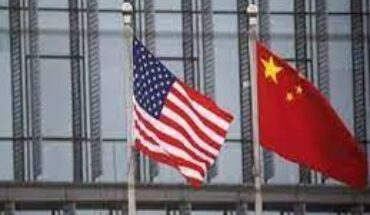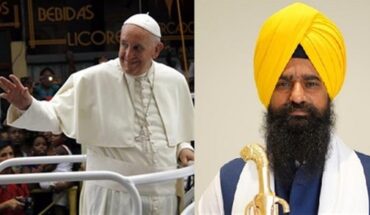Prime Minister Narendra Modi on Friday held a bilateral meeting with Muhammad Yunus, Chief Advisor of Bangladeshi interim government, on the sidelines of the 6th BIMSTEC Summit in Bangkok.
This marks their first official engagement since the Yunus-led interim government assumed charge in Dhaka in August last year following the ouster of former Bangladeshi Prime Minister Sheikh Hasina.
The meeting between the two leaders comes at a critical juncture in India-Bangladesh relations, which have witnessed turbulence since the change in leadership in Dhaka.
Following the meeting, Yunus’ office posted on X: “Chief Adviser Professor Muhammad Yunus and Indian Prime Minister Narendra Modi join a bilateral meeting on the sidelines of sixth BIMSTEC Summit in Bangkok, Thailand on Friday.”
The timing of this meeting is significant, as it follows Yunus’ recent visit to China and his remarks during a meeting with Chinese President Xi Jinping.
Yunus had described Bangladesh as “the only guardian of the ocean” in the region and suggested that the landlocked northeastern states of India — known as the “seven sisters” — could benefit by extending their economic linkages through Bangladesh as part of China’s economic sphere.
On Thursday, the two leaders had an informal interaction during the official dinner hosted by Thai Prime Minister Paetongtarn Shinawatra for the visiting Heads of State and Government at the BIMSTEC Summit.
The official X handle of the Chief Advisor of Bangladesh posted images of PM Modi and Yunus seated next to each other at the dinner.
Bangladeshi media quoted Deputy Press Secretary to the Chief Advisor, Abul Kalam Azad, as saying that the two leaders “met each other” during the dinner event, ahead of their formal bilateral meeting on Friday.
The interim government in Bangladesh had been keen to initiate direct diplomatic engagement with India, and Friday’s meeting on the sidelines of the BIMSTEC Summit provided the first opportunity for both sides to recalibrate ties.
Bangladesh is also set to take over the BIMSTEC chairmanship, further adding to the significance of the bilateral exchange.
Relations between New Delhi and Dhaka have nosedived since Sheikh Hasina’s exit. The new interim government’s tenure has seen a rise in attacks on the Hindu minority population in Bangladesh, causing concern in India.
The Bangladeshi administration has acknowledged the incidents but maintains they are politically motivated and not religious in nature.
Amid the tense political atmosphere, Prime Minister Modi recently reached out to Yunus in a letter marking Bangladesh’s National Day.
In the letter, PM Modi recalled the shared legacy of the Bangladesh Liberation War and underscored the importance of mutual sensitivity in maintaining the India-Bangladesh partnership.
“I extend my felicitations to you and the people of Bangladesh on the occasion of the National Day of Bangladesh, ” the Prime Minister wrote.
“This day stands as a testament to our shared history and sacrifices that have laid the foundation of our bilateral partnership. The spirit of the Liberation War of Bangladesh continues to remain a guiding light for our relationship, which has flourished across multiple domains, bringing tangible benefits to our people, ” he added.
“We remain committed to advancing this partnership, driven by our common aspirations for peace, stability, and prosperity, and based on mutual sensitivity to each other’s interests and concerns. Please accept, Excellency, the assurances of my highest consideration, ” the letter further stated.
With the BIMSTEC chairmanship officially transferring to Bangladesh during the Summit, the direction of future India-Bangladesh relations could hinge significantly on how both sides navigate current challenges and diplomatic overtures in the months ahead.





